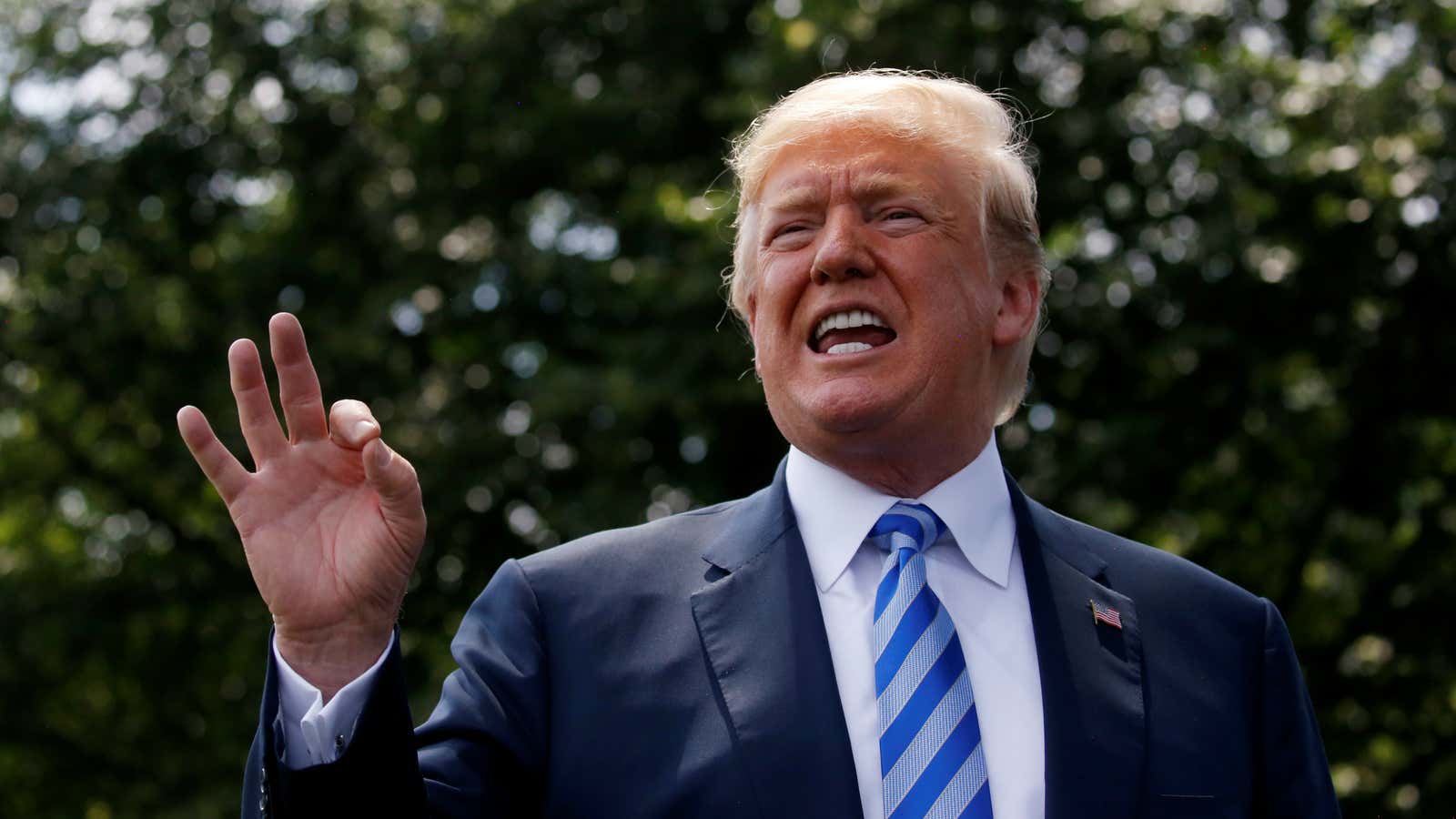When Donald Trump ran as the Republican candidate for US president in 2016, many questioned whether a man of his policies and past allegiances belonged in the party at all.
Flash forward two years and Donald Trump is the Republican Party. Or as John Boehner, the former Republican congressional leader, recently put it, ”There is no Republican Party. There’s a Trump party. The Republican Party is kind of taking a nap somewhere.”
Truly, the president’s policies on everything from trade and the deficit to immigration and infrastructure would have been at odds—and in some cases, anathema—to the pre-2016 ideals of the party of Ronald Reagan. But it turns out the GOP’s members weren’t particularly attached to morals-obsessed, supply-sider conservatism that had defined the party since Reagan.
In fact, they heartily approve of the tribalistic nationalism Trump has foisted on their party. Looking at postwar presidential approval ratings among each president’s own party at their 500th day in office, Trump boasts the highest after George W. Bush post-9/11, according to lobbyist Bruce Mehlman, via Axios.
In other words, without the bump in support Bush gained from the extraordinary circumstances of 9/11, Trump would enjoy more support from his party at Day 500 than any other president since World War II. That’s pretty astonishing.
Of course, some of that might have to do with the size of the denominator. Fewer people identifying as Republicans could help explain Trump’s unusually strong support. Only 26% of Americans identify themselves as Republican, according to Gallup—compared with 31% in February 2017. Though it’s hard to find comparable historical data, a smaller share of Americans identify as Republicans than have during several past Republican presidencies, based on data from both Pew and Gallup.
Indeed, though Trump seems to have dazzled his own party, the rest of America doesn’t seem to share the GOP’s high regard. Only 42% of Americans approve of Trump’s performance, according to Gallup. That’s the highest ratings he’s earned in a year, but it compares with a 58% average for modern presidents at the same point in their incumbency. In fact, Trump ties with Jimmy Carter’s May 1978 approval rating for the lowest since polling began in 1938.
